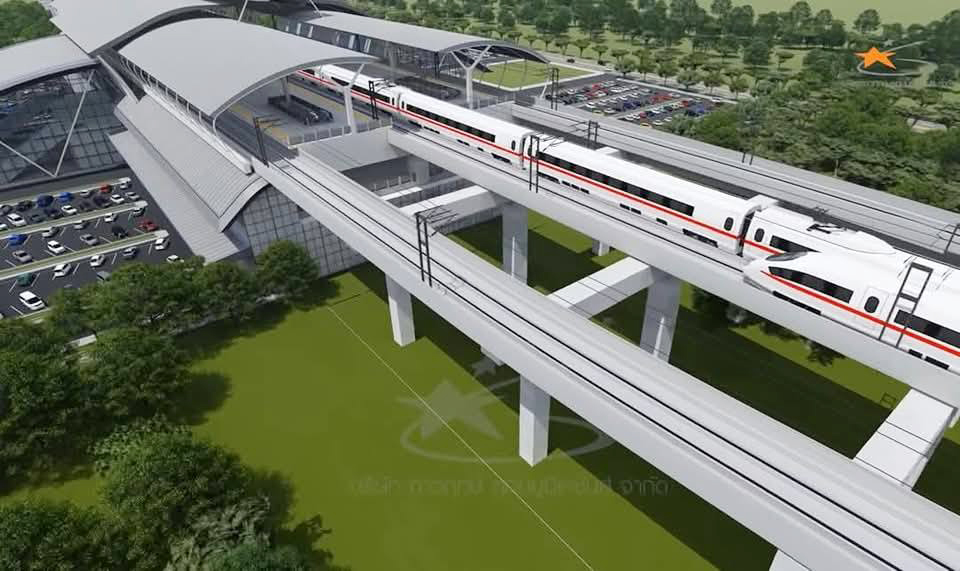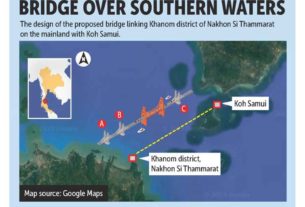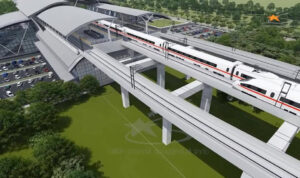
High-speed rail linking Thailand’s three airports of connecting Don Mueang, Suvarnabhumi and U-Tapao on brink of collapse
BANGKOK — Nearly six years after signing the public-private partnership (PPP) contract in October 2019, Thailand’s 224.5-billion-baht ($6.8 billion) high-speed rail project connecting Don Mueang, Suvarnabhumi, and U-Tapao airports has made virtually no progress. The mega-project, a cornerstone of the Eastern Economic Corridor (EEC), now teeters on the edge of collapse.
Asia Era One Company, which won the bid, has yet to meet the conditions required to obtain a Notice to Proceed (NTP) from the State Railway of Thailand (SRT), the project’s public partner. Development has stalled for nearly two years and ten months, initially due to the COVID-19 pandemic.
Economic Fundamentals Have Shifted
The prolonged delay has fundamentally altered the project’s viability. Lower investment returns, fewer passengers than projected, declining investor interest in the EEC, and rising loan interest rates have all undermined its feasibility.
The pandemic—a force majeure event—prevented the private consortium from paying the 10.67-billion-baht ($326 million) concession fee for the Airport Rail Link and from securing adequate financing, bringing construction to a complete halt.
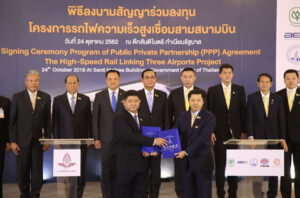
With the project paralyzed, only three options remained: terminate the contract, amend the PPP agreement, or allow SRT to proceed independently.
A Brief Window of Hope
The Eastern Economic Corridor Policy Committee (EECPC) attempted to salvage the project by approving five key contract amendments based on Asia Era One’s proposal. The main revision allowed the government’s co-investment to be paid in installments tied to construction progress, while the private consortium would provide an additional 160 billion baht ($4.9 billion) in guarantees and make the Airport Rail Link payment in seven installments.
Both SRT and Asia Era One agreed to these changes. The amended contract was reviewed by the Office of the Attorney General (OAG) and prepared for Cabinet approval, with a construction commencement date already scheduled.
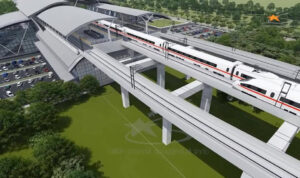
Political Shift Derails Progress
However, a change in government under Prime Minister Anutin Charnvirakul disrupted the process. The new administration argued that the revised contract disadvantaged SRT, citing 18 legal concerns raised by the OAG, and demanded a return to the original 2019 agreement.
Transport Minister Phiphat Ratchakitprakarn publicly opposed the proposed “build-and-pay” installment structure, calling it inconsistent with the original contract, which stipulated that government payments would only be made upon project completion. He predicted that if the amendment reached the Cabinet, it would not gain approval.
This announcement effectively nullified the five-point amendment framework. Shortly afterward, the SRT Governor resigned, plunging the project back into paralysis.
Ripple Effects Across the EEC
The consequences extend far beyond the rail line itself. Other major EEC projects—including the U-Tapao Airport expansion and the Eastern Aviation City—depend on the high-speed rail for critical connectivity. Without it, the entire corridor’s development is at risk.
Given the current impasse, the high-speed rail project appears increasingly likely to be terminated under the existing PPP contract. Whichever party initiates termination will face liability for damages, almost certainly triggering prolonged legal disputes and substantial compensation claims.
https://www.khaosodenglish.com/news/business/2025/10/20/high-speed-rail-linking-thailands-three-airports-on-brink-of-collapse/
